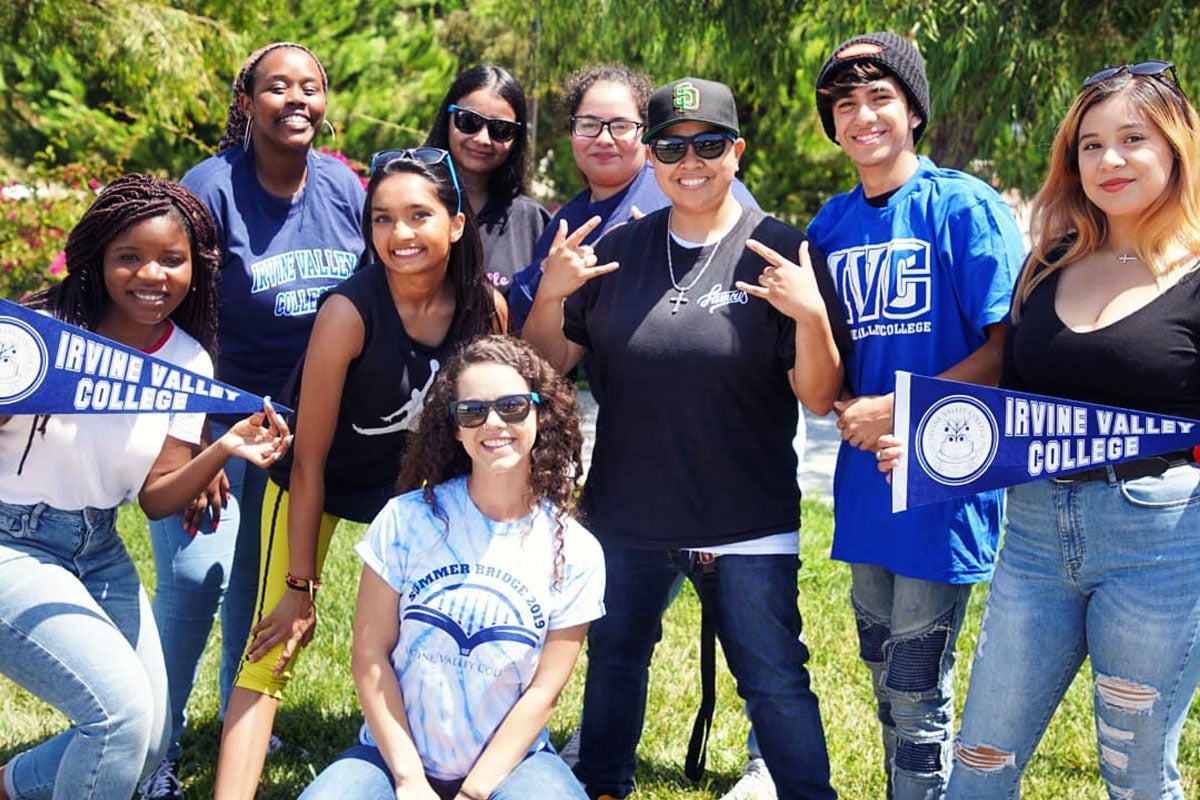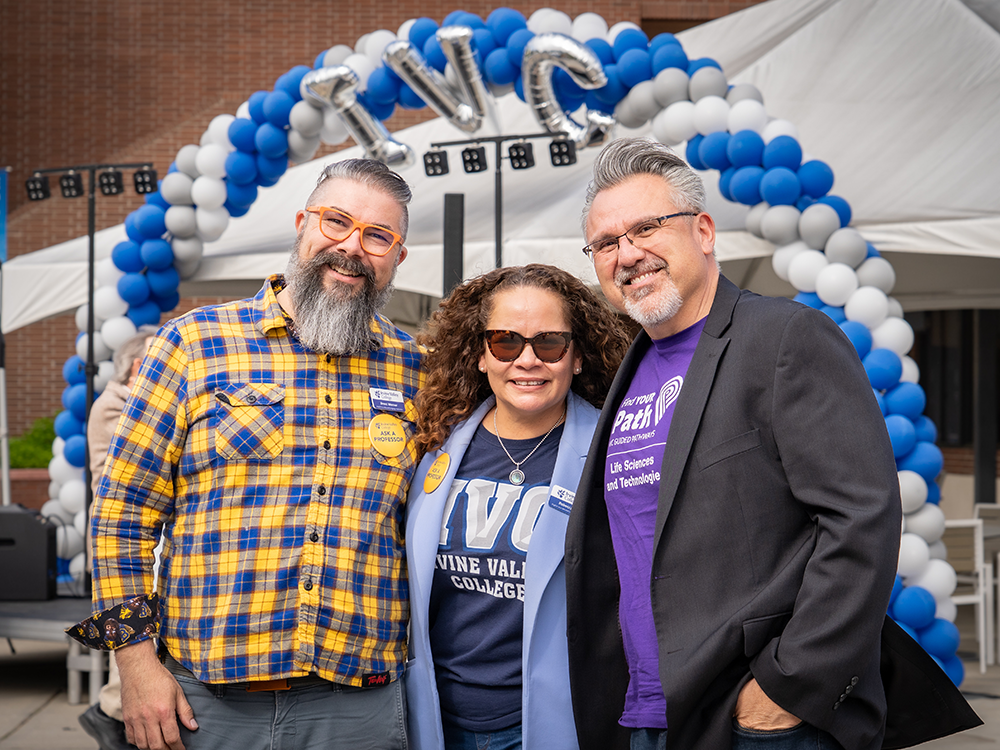Certain nonresidents may qualify for a non-resident tuition exemption. Eligibility criteria are noted below. Students who believe they are eligible for an exemption based on any one of the following criteria should consult the Office of Admissions and Records when they apply:
- Any Student who is a member of the armed forces of the United States stationed in California on active duty, except a member of the armed forces assigned for educational purposes to a state supported institution of higher education.
- Any student who is a natural or adopted child, stepchild, or spouse who is a dependent of a member of the armed forces of the United States stationed in this state on active duty.
- Students who are eligible as covered individuals as defined in the Veterans Access, Choice and Accountability Act of 2014 (VACA Act) who are taking advantage of their Chapter 30 or 33 benefits or who use educational assistance under Chapter 31.
- Parents who are federal civil service employees and have moved to California as a result of a military realignment action that involves the relocation of at least 100 employees. This exemption also applies to the natural or adopted children or stepchildren of such employees. (EDC 68084)
- attended a combination of California high school, adult school, and California Community College for the equivalent of three years or more, or;
- attained credits earned in California from a California high school equivalent to three or more years of full-time high school course work and attended a combination of elementary, middle and/or high schools in California for a total of three or more years, and
- graduation from a California high school or attained the equivalent prior to the start of the term (for example, passing the GED or California High School Proficiency exam); or
- completed an associate degree from a California Community College, or
- completed the minimum requirements at a California Community College for transfer to the California State University or the University of California, and
- completion of a questionnaire form prescribed by the State Chancellor’s Office verifying eligibility for this nonresident tuition exemption; and
- in the case of a student without lawful immigration status, the filing of an affidavit that the student has filed an application to legalize his/her immigration status, or will file an application as soon as he/she is eligible to do so.
K-12 special part-time students, other than non-immigrant aliens, participating in a College and Career Access Pathways (CCAP) partnership program or a K-12 special part-time student (non-CCAP - concurrently enrolled high school student).
Students who are under 20 years old and served by the California Foster Care System.
- High school attendance in California for three or more years;
- Graduation from a California high school or attainment of the equivalent thereof;
- Completion of a questionnaire form prescribed by the State Chancellor’s Office verifying eligibility for this nonresident tuition exemption.
(AB 2210) Education Code section 68075.6 grants an immediate nonresident tuition fee exemption to eligible Special Immigrant Visa (SIV) holders and refugee students who settled in California upon entering the United States. This exemption is only available for the maximum time it would take for the student to establish California residency. This exemption applies to the following:
- Iraqi citizens or nationals (and their spouses and children) who were employed by or on behalf of the United States Government in Iraq (Pub.L. No. 110-181, § 1244)
- Afghan and Iraqi translators (and their spouses and children) who worked directly with the United States Armed Forces (Pub.L. No. 109-163, § 1059)
- Afghanistan nationals who were employed by or on behalf of the U.S. government or in the International Security Assistance Force (ISAF) in Afghanistan (Pub.L. No. 111-8, § 602)
- Refugee students admitted to the United States under Section 1157 of Title 8 of the United States Code
(EDC Section 76380) An adult enrolled in a noncredit class in English and citizenship for foreigners, a class in an elementary subject, a class designated by the governing board as a class for which high school credit is granted when the class is taken by a person who does not hold a high school diploma, or any class offered by a community college district pursuant to Section 8531 , 8532 , 8533 , or 8534
(SB 141) A student who demonstrates financial need, has a parent who has been deported or was permitted to depart voluntarily, moved abroad as a result of that deportation or voluntary departure, lived in California immediately before moving abroad, attended a public or private secondary school in the state for three or more years, and upon enrollment, will be in his/her first academic year as a matriculated student in California public higher education, will be living in California, and will file an affidavit with the District stating that he/she intends to establish residency in California as soon as possible.
Students enrolled in grades 9 – 12 (including those enrolled in a College and Career Access Pathways (CCAP) program) at California high schools will be exempted from paying the enrollment fee and non-resident fees, unless under a non-immigrant status (e.g. B Visitor Visa, F-1 Visa) or as referenced in Administrative Regulation 5607. Students enrolled in grades K-8 will be required to pay the enrollment fee but are exempted from nonresident fees.
- (AB 1090) Any surviving spouse or surviving child of a deceased person who was a resident of the state and employed by or contracting with a public agency, whose principal duties consisted of active law enforcement service or active fire suppression and prevention, and who died as a result of their duties, as specified. This bill would additionally prohibit those institutions from collecting or requiring any mandatory campus-based fees from those surviving spouses and children.
- (EDC 68121 and 76300) The surviving spouse or natural or adopted child or other qualifying dependent of any victim of the terror attacks of September 11, 2001. Either the qualifying dependent or the individual killed in the attacks must have been a resident of California on September 11, 2001. This exception is available to a surviving natural or adopted child of a California resident killed in the terror attack of September 11, 2001, until that child reaches the age of 30.





